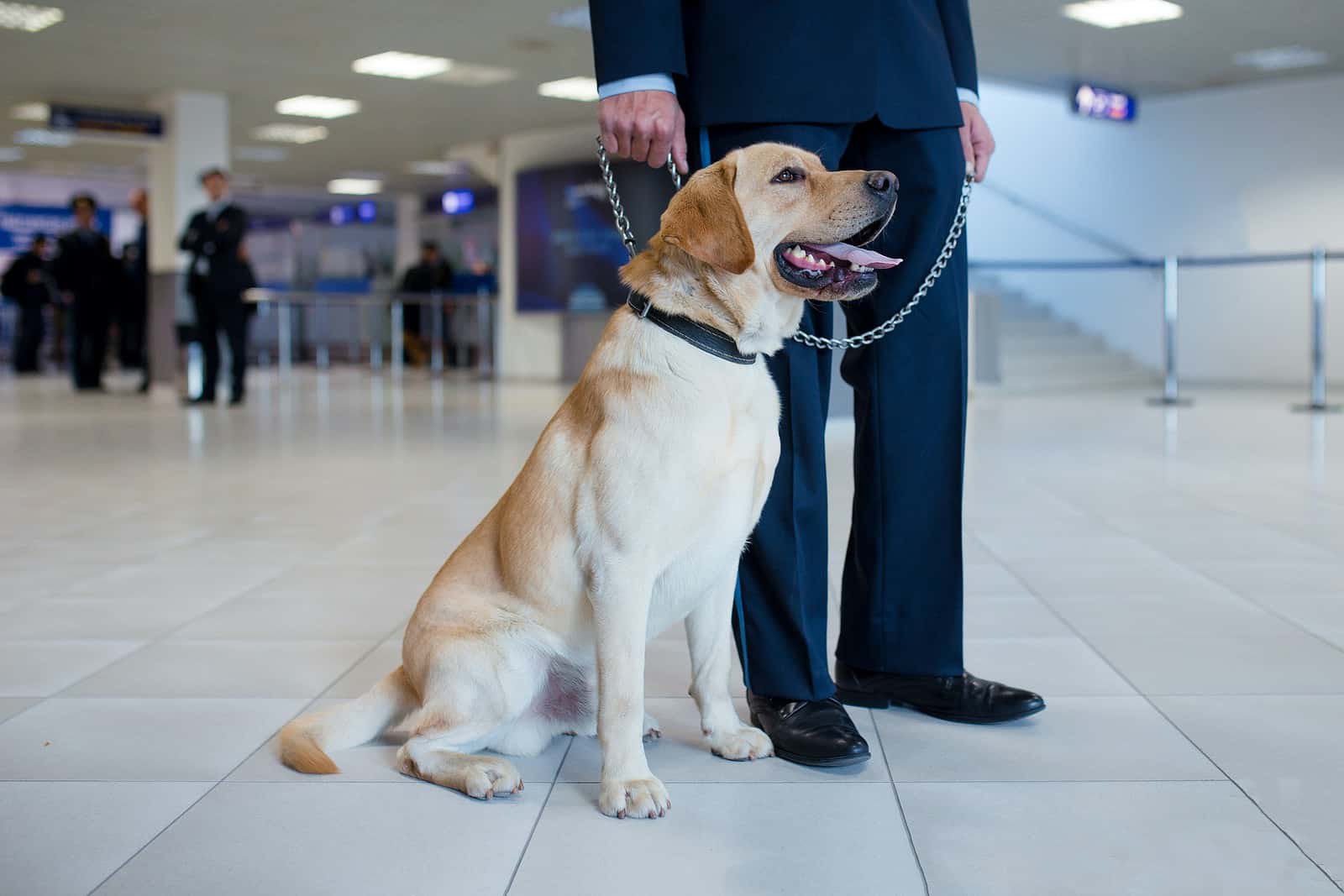
There is still a lot of controversy regarding testing for COVID-19. Some tests take days to get results. Others are quicker but potentially less accurate. A German study suggests that dogs could use their sensitive noses to do a sniff test (BMC Infectious Diseases, July 23, 2020). The dogs are approximately as accurate as a quick nasal swab test. Now, the Finnish government is putting dogs to work at the Helsinki airport.
The Finnish Experiment:
Finland is employing a unique testing strategy that is highly accurate and amazingly fast. The government is deploying trained coronavirus-sniffing dogs at its main airport in Helsinki.
For this pilot program, participation is voluntary. It takes the traveler about a minute to swab the neck and forearms. Then the dog sniffs the swab. Well-trained dogs are able to determine in roughly 10 seconds whether the sample is positive or negative.
In early studies, trained dogs were able to detect SARS-CoV-2 with a sniff test at least as well as standard PCR lab tests. Importantly, they may be able to detect infected patients before they develop symptoms and before they become PCR positive. A positive test could prevent people without symptoms from flying and spreading the virus to others on the plane. Finnish researchers hope that if the airport experiment works, they may be able to use the dogs in schools, nursing homes and other high-risk locations.
How the Sniff Test Was Developed:
Investigators trained eight dogs attached to the German Army for a week. They rewarded the canines with a ball or a bit of food when they signaled that they had detected saliva from a COVID-19 patient. Following the training, the dogs were tested on more than 1,000 samples. For this study, the handlers did not know whether the samples presented were from infected or healthy people.
The dogs had an accuracy rate of 94%. They correctly identified 157 positive samples and 792 negative ones. Dogs varied somewhat among themselves as to accuracy, and they did make mistakes on 63 samples overall. They identified 30 positive samples as negative. Conversely, they failed to properly reject 33 negative samples. In comparison, the quick nasal swab test from Abbott appears to be about 91% accurate.
How the Sniff Test Might Be Used:
The scientists note that dogs can apparently detect metabolic changes triggered by infection with the SARS-CoV-2 virus. Because they work quickly, dogs might excel in situations where clinical testing is too slow or cumbersome.
The researchers suggest that trained sniffer dogs like these could help in crowded areas where quick detection would be at a premium:
“This method could be employed in public areas such as airports, sport events, borders or other mass gatherings as an alternative or addition to laboratory testing, thus helping to prevent further spreading of the virus or further outbreaks.”
The investigators included a very short video of one of the dogs (Labrador retriever seven) performing the test. (It is Additional File 1 in the publication.) If you are interested in learning more about how dogs use their olfactory abilities to help humans, you may be interested in Cat Warren’s fascinating book, What the Dog Knows.
American scientists are now following up on this German study with research of their own. Here’s a link to the Washington Post article, which also has a video of a dog working on the test.
Citations
- Jendrny P et al, "Scent dog identification of samples from COVID-19 patients – a pilot study." BMC Infectious Diseases, July 23, 2020. DOI https://doi.org/10.1186/s12879-020-05281-3

